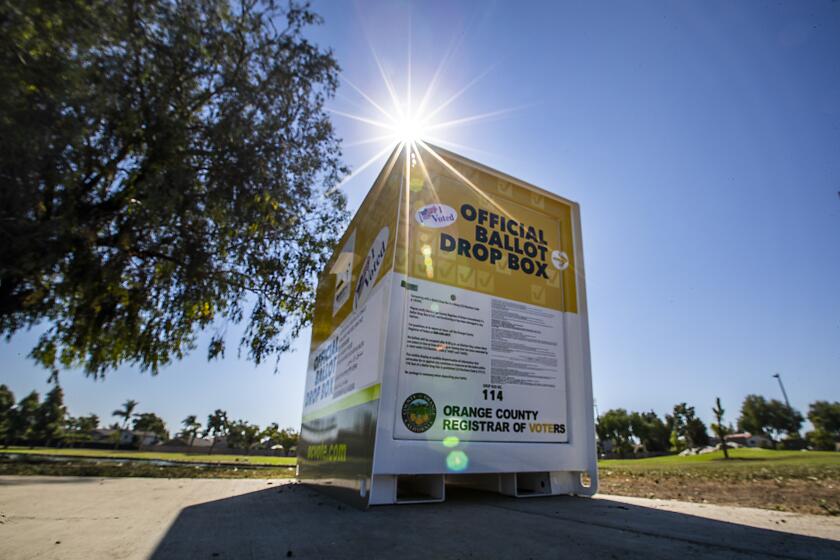District to Consider Interpreters at Events : Oxnard: School board will decide tonight on formalizing a policy to provide translations for Spanish-speaking parents.
After years of debate, the Oxnard School District will decide tonight whether to have a Spanish-language interpreter present at all of the district’s major events.
The district’s board of trustees also will consider buying as many as 50 electronic headsets that would allow audience members to listen to simultaneous translations at graduations, large social events and other special ceremonies.
“This is a major step for the district,” said Supt. Bernard Korenstein. “We will formalize what we have practiced for years.”
School officials said simultaneous translations would prevent events from lasting too long--a complaint from some parents who attended the recent opening ceremony at Frank Intermediate School.
“Everything that was said in English was repeated in Spanish,” said Trustee Jack T. Fowler, who said he favors the proposal. “That was ridiculous.”
As in some other Ventura County school districts with predominantly Latino populations, Oxnard already has a Spanish-speaking interpreter available for board meetings if the district is notified of the need.
About 80% of the elementary and intermediate school district’s 13,000 students are Latino, and 47% of those students speak English as their second language, district figures show.
Korenstein said a formal policy would allow the district to set more specific guidelines on how and when the district would provide translators.
The translation equipment and headsets would cost about $5,000, officials said. In addition, the district pays translators about $13 an hour for their services.
If the board votes to purchase the equipment, it would be made available to all of the district’s schools and parent-teacher associations. Those groups, however, must find their own translators.
Trustee Mary Barreto and bilingual teachers have argued for years that the district is limiting parents’ participation in their children’s education by not providing translators at meetings and other events.
Barreto said she would like the district to broaden the proposed policy so that a translator’s presence would be required at all district board meetings and at expulsion hearings where the parents are Spanish-speakers.
“Only when they are at the hearing (do) parents realize the seriousness of the event,” Barreto said. “They get very confused because they are unable to express themselves. It’s heartbreaking.”
But Korenstein said it would be too costly to have a translator at each of the district’s twice-monthly school board meetings.
“The number of people who attend board meetings and who need translation has historically been few,” Korenstein said. “Also, we always have district staff in our meetings who can translate.”
If the board adopts a policy, non-English-speaking parents would still be required to give the district advance notice that they plan to attend a board meeting so officials can arrange for a translator.
That requirement is difficult for some parents to meet, said Ray Alvarez, a bilingual fourth-grade teacher at Emilie Ritchen School.
“It’s too much of a hassle for parents to try to arrange for a translator when they don’t know enough English to make the request,” Alvarez said. “I know many parents who would attend meetings if they knew someone there spoke Spanish.”
Barreto, one of two Spanish-speakers on the five-member board, said she has often been called on to translate for parents and for board members. She said performing that task has caused some non-Spanish-speaking trustees to question her objectivity.
“It just didn’t work. They felt uncomfortable, I felt uncomfortable,” Barreto said. “A professional should translate.”
More to Read
Sign up for Essential California
The most important California stories and recommendations in your inbox every morning.
You may occasionally receive promotional content from the Los Angeles Times.






